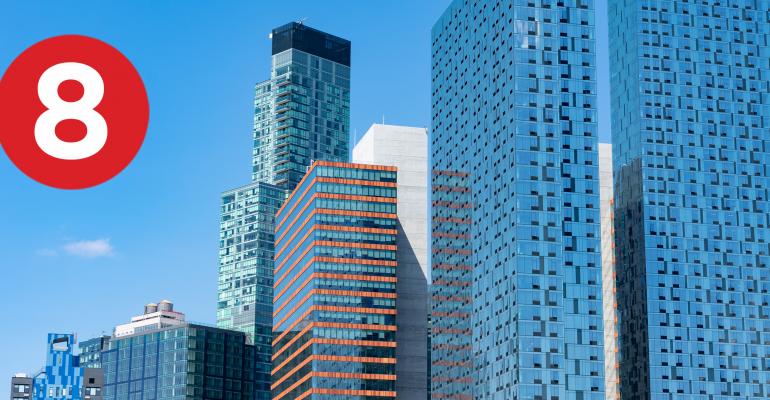- Can Homes Save the Shopping Mall? “Westfield’s owner has given investors a preview of what shopping malls might look like in the future—part ad platform, part housing complex. But the makeover plan is just window dressing until it can sell its American properties for funding. Europe’s top listed commercial property company in terms of gross assets, Unibail Rodamco Westfield, said at an investor day Wednesday that it will make a bigger push into residential property development and advertising.” (The Wall Street Journal)
- Will Ending a Lucrative Tax Break Ease or Fuel the N.Y.C. Housing Crisis? “The subsidy is made possible through a 51-year-old tax-incentive program known as 421a, an esoteric name for a lucrative property-tax exemption that critics say has worsened the city’s housing affordability crisis by encouraging the construction of luxury buildings instead of lower-cost homes. First introduced in the 1970s, the tax break for builders of multifamily housing in the city was meant to promote new residential construction when New York was facing a fiscal crisis and few developers were building anything.” (The New York Times)
- Five Below to Open Up to 400 Stores During Next Two Years “Five Below is accelerating what is already one of the most aggressive expansion programs in specialty retail. As part of its new long-term “Triple-Double” vision, the tween and teen value retailer said it plans to open 375 to 400 new stores during the next two fiscal years, and 550 to 600 new stores over fiscal years 2024 and 2025. Five Below, which opened 170 net new locations in 2020, operated 1,190 stores in 40 states as of the end of January.” (Chain Store Age)
- Are Multifamily, Industrial Price Increases Enough to Hedge Inflation? “To say that multifamily and industrial sectors are hot is like noticing heat at the equator. Did anyone not already notice? The National Association of Realtors has been tracking the 12-month sales price changes on various property categories. In March, they were as follows: 14.7% for industrial, multifamily at 10.6%, retail’s 5.1%, and, bringing up the rear, office’s 2.3%. Except for office, the appreciation rates exceeded those of pre-pandemic times.” (GlobeSt.com)
- Turning Chelsea Loft Buildings into Boutique Office “After purchasing them for $72 million in late 2019, The Feil Organization set out to turn two aging loft buildings in West Chelsea into unusual boutique office space, along with an outdoor sculpture garden for one of the buildings’ art gallery tenants. Petzel Gallery, which will occupy the entire first floor and part of the second at 520 West 25th Street, will curate the outdoor sculpture gallery on the building’s second floor. The space, which will be accessible to tenants in both buildings, will include landscaping, trees and art, as well as seating and meeting areas.” (Commercial Observer)
- America’s Homebuilders Are Getting Squeezed by the War in Ukraine. Here’s How. “For many home builders, supply chain disruptions from the pandemic have meant garage doors are on back order, floor tiles keep getting discontinued mid-construction, and appliances are marooned aboard waylaid shipping vessels. Now, the Russia-Ukraine conflict is hitting commodities such as oil and metals, leaving US home builders to brace for further cost hikes and delays and putting the squeeze on already tight housing inventory and affordability.” (CNN Business)
- From Lease Structures to When to Stop Investing: Inside Blackstone’s Logistics Strategy “Industrial rents should outpace inflation, so you need to know how to capture that uplift.” (Bisnow)
- H&M Struggles with Russian Closures, Surging Costs and New COVID-19 Disruptions “H&M Hennes & Mauritz said store closures in Russia, surging expenses and new Covid-19 disruptions were all hurting its business, posing a challenge to the fashion retailer’s expansion plans. The Swedish company on Thursday reported weaker-than-expected first-quarter earnings and warned that sales growth had slowed in recent weeks. H&M said new waves of Covid-19 had resulted in store closures in China and hurt footfall in Germany and Austria, while its decision to stop sales in Russia after the invasion of Ukraine had wiped out a further chunk of revenue.” (The Wall Street Journal)
0 comments
Hide comments





